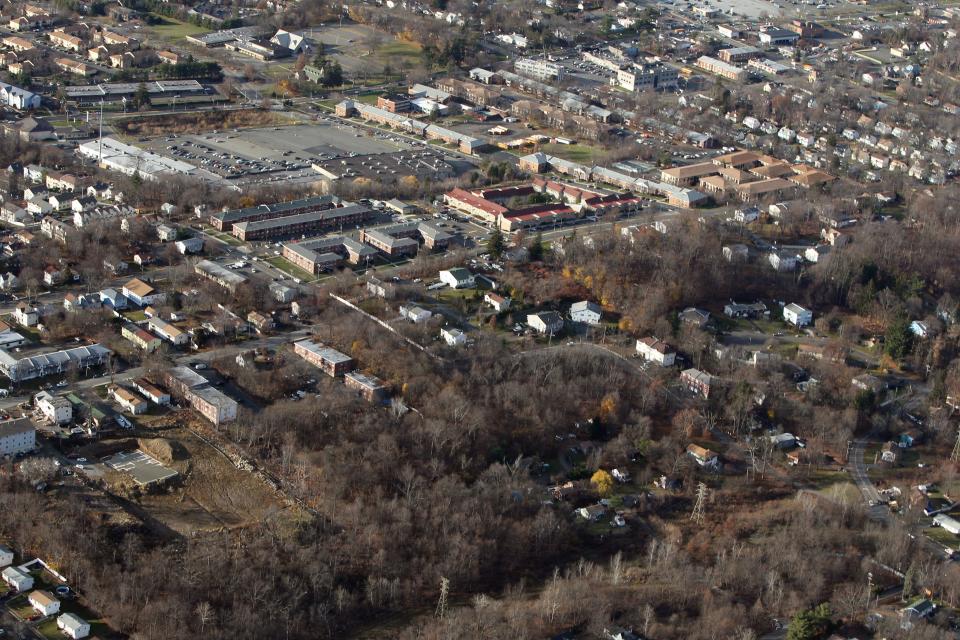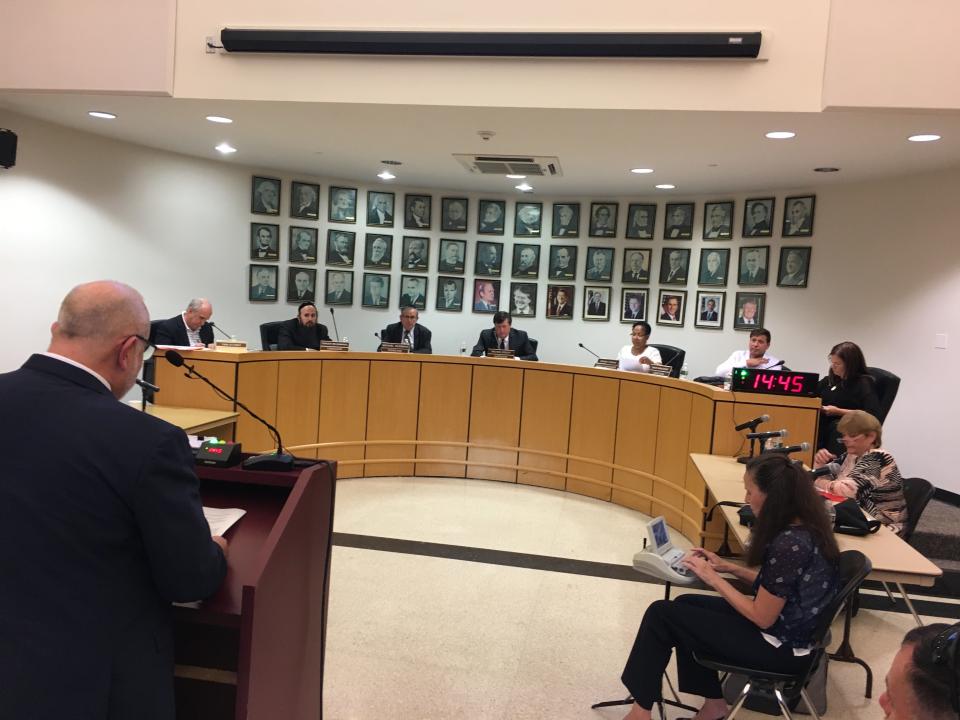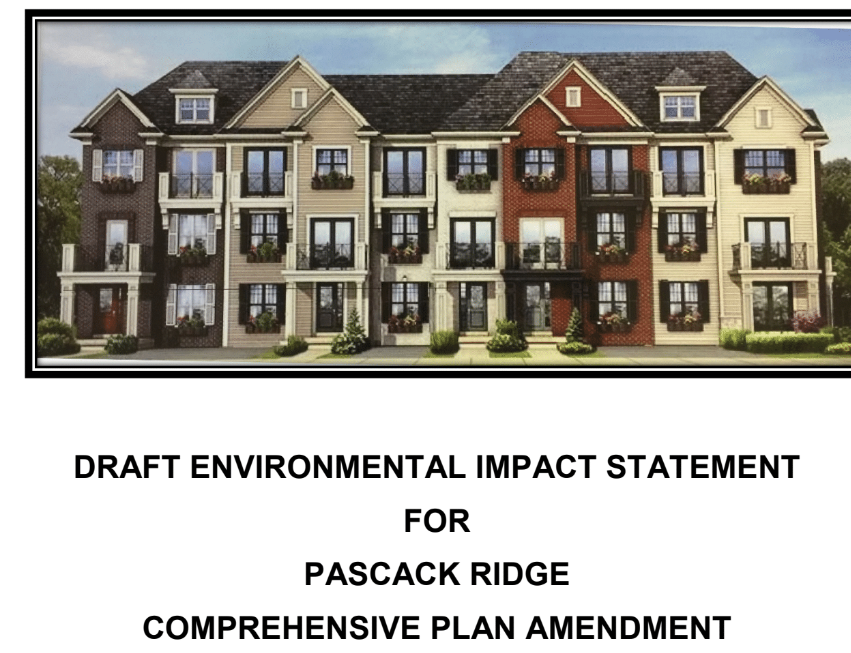Pascack Ridge: Judge dismisses housing segregation claims; Ramapo must review other issues
RAMAPO − A Town Board-approved rezoning allowing a high-density housing development hit a stumbling block in state court, but the judge dismissed the major issue of potential segregated housing.
Ruling on a legal action brought by the Hillcrest branch of Citizens United to Protect Our Neighborhood, Supreme Court Judge Paul Marx ruled the Town Board must redo aspects of its state environmental review before the 224 houses could proceed through the land-use process.
The Town Board also is required to thoroughly consider less dense alternatives to the high-density zoning approved in February 2020.

Pascack Ridge housing: Judge Marx rules on a challenge to development
Legal challenge: Judge allows legal challenge to Ramapo's higher density zoning to continue
Details of Judge Marx's decision Pascack Ridge
Marx decided the Town Board members failed to follow all New York State Environmental Quality Review Act procedural rules involved in the rezoning of the nearly 28-acre property off Pascack Road and Ewing Avenue, outside Spring Valley. Marx released his 18-page ruling on Feb. 22.
Marx ruled the Town Board members must properly identify the decision as rezoning and as a site review as well as identify the involved agencies when approving a draft environmental study.
The town board needs to consider the Rockland County Drainage Agency as an involved agency. Marx noted that the drainage agency has permit authority over the acreage, and the Rockland County Planning Department had informed Ramapo in May 2018 that its SEQRA documentation was inaccurate.
The Rockland Planning Department disapproved of Ramapo zoning amendments. The department noted that a "less dense zoning designation is more suitable for the environmentally constrained Pascack Ridge site."

As a result of the Planning Board rejection, the five-member Town Board needed a super-majority of four votes in February 2020 to approve the zone change to MR-12. The zone change would allow 244 units on a maximum of 12 units per acre. The previous zone maxed out at 100 units on nearly 28 acres — 56 two-family units and 44 single-family units.
The Town Board disagreed with the county's conclusions and adopted amendments to the town's 2004 comprehensive plan and voted 5-0 for the zone change and environmental review.
The Clarkstown Planning Board also opposed the development based on the potential impacts on the adjacent residential neighborhood in Nanuet.
CUPON leaders and their attorney wanted Marx to annul the rezoning and have the town specifically consider the racial and ethnic impact of the development's future residents.
Marx denied CUPON, arguing SEQRA doesn't require a review on racial or ethnic grounds. He cited appeals court rulings that projecting the future racial makeup of a housing development is speculative and beyond the court's purview.
CUPON's attorney, Susan Shapiro, said she and the town disagree on the overall impact of Marx's decision. She argues the decision makes the Planning Board's subdivision approval moot, while the town counters Marx didn't overturn the subdivision's approval.
Shapiro said the larger issue is the developer, Alex Goldberger of Monsey Lumber, has not lived up to the basis for the zone change - providing affordable housing units. She said the developer plans to sell the units at market value and has not agreed to rentals.
She also said the developer has not provided a traffic light at Ewing Avenue, buffers and 2.8 acres of open space within the development.
She said CUPON has been willing to negotiate to settle these issues, but Golderberg and his attorney have not responded.
Goldberger's conceptual plan called for 224 units in 32 three-story townhouse buildings, along the hilly landscape with overhead power lines adjacent to residential areas of mostly single-family homes. The property contains a stream and wetlands.
The concept could include apartments with six bedrooms, two bedrooms, and three bedrooms, according to his draft environmental impact statement.
Goldberger has yet to submit architectural drawings so issues concerning the number of kitchens and other amenities remain unknown - a need for Orthodox Jewish families.
Shapiro said segregation remains a concern.
"We know that since 2004 all the multi-housing units in Ramapo, similar to what's being proposed, is exclusively white and segregated," Shapiro said.
Goldberger, a veteran builder, could not be reached on Marx's recent decision. His attorney, Daniel Richmond, didn't respond to a request for comment.
Richmond has previously said Pascack Ridge planners have followed environmental regulations and the housing will be open to everybody, like at other Goldberger developments. He said the law mandates all people to get an opportunity to live in the development.
CUPON-Hillcrest leader Micheal Miller said the grassroots group remained disappointed the judge dismissed "our claim that this development will be racially segregated housing that should be annulled by the court.
"Our claim required the Town Board to specifically consider the racial impact, not only of the rezoning to allow construction of multiple family residences on the site but of the racial makeup of the future residents of the housing to be built on the site in a primarily diverse area," Miller said.

Ramapo Supervisor Michael Specht and the other board members would be reviewing Marx's decision with the town's legal staff, Ramapo Deputy Town Attorney Dennis Lynch said.
"The town and the supervisor are most pleased that the court rejected any claims of segregation in what the town has approved," Lynch said. "As for the other issues, the supervisor is reviewing all and will follow up with an appropriate comment after he and the Town Board has reviewed the decision.”
Deborah Munitz, who has reviewed planning decisions for CUPON and is a leader of the environmental group ROSA 4 Rockland, said, "The court decision is good in that it recognized some failings in the approval process, but appears to have missed the mark on other key failings in the environmental review process."
She said the town should focus on minimizing the development's impacts and protecting existing residents.
Munitz opined that the town and the developer have wasted years and money on litigation rather than simply correcting past failures. She said the Specht administration since coming into power in 2018 "inherited a messy situation and didn’t take the necessary steps at that time to sort it out."

Steve Lieberman covers government, breaking news, courts, police, and investigations. Reach him at slieberm@lohud.com. Twitter: @lohudlegal.
Read more articles and bio. Our local coverage is only possible with support from our readers.
This article originally appeared on Rockland/Westchester Journal News: Ramapo must redo environmental review for Pascack Ridge development

